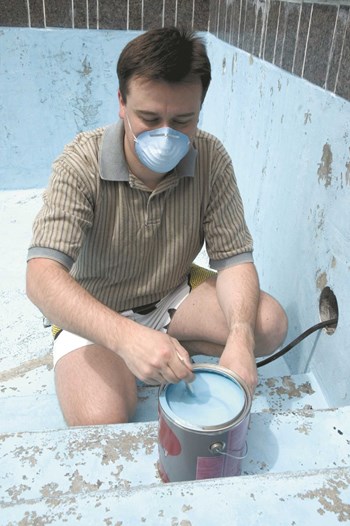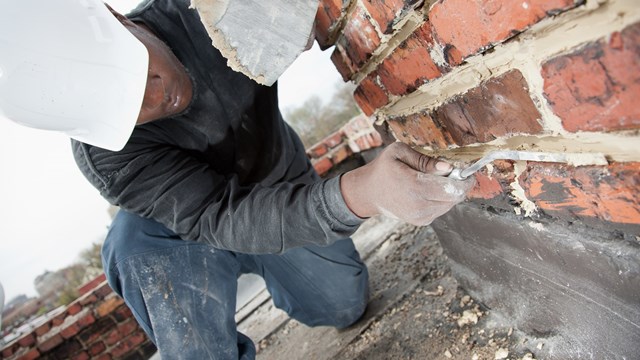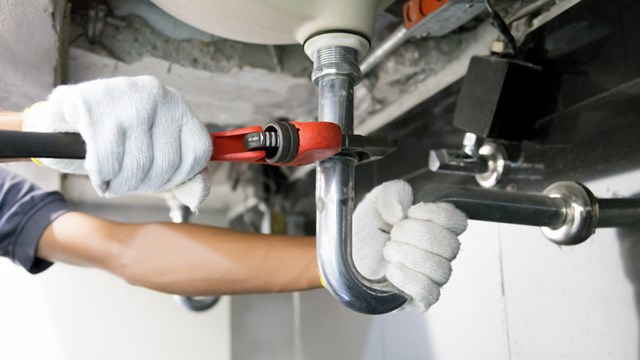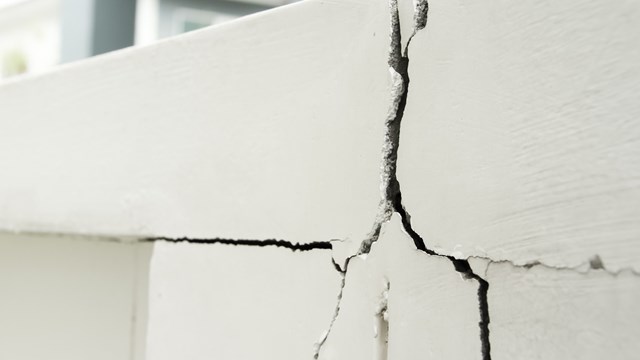
Thanks to its tropical climate, erratic weather changes are nothing new to Southern Florida residents. There are cold fronts from November through March, and if that’s not enough, the hurricane season is kind enough to coincide with the wet season. Despite the lack of four distinct seasons, this occasional volatility makes the maintenance of outdoor HOA amenities a year-round proposition.
Steve Cohen, LCAM, vice president of A & N Management, Inc., in Boca Raton says, “Amenities that are used year-round require ongoing preparation and care. The intensity of use increases in the winter and spring and requires more cycles of preparation during those periods.”
In order for residents to appreciate and enjoy their outdoor amenities (and for those amenities to remain value-added assets rather than liabilities), the maintenance of facilities such as sports courts and pools should be recognized as a top priority all year long.
A Busy Season
According to Ellen F. Bonder, LCAM, president of Boca Raton-based management company AKAM On-Site, Inc., “The busier times of year for condominium and homeowners associations are based on the seasons in other geographic areas. This includes the northeastern United States as well as South America. From those locales, ‘seasonal’ residents make their way to South Florida at different times of the year. For example, northern snowbirds flock to South Florida in the winter months, while South Americans typically arrive during Easter week, mid-summer, and toward the end of the year. In general, however, because of South Florida’s climate, amenity preparation and maintenance must be performed year-round.”
According to Bonder, “The only property preparation and maintenance that is seasonally unique to South Florida occurs in advance of—and during—our hurricane season, which spans July through October. In preparation, we lower the water level in outdoor pools because hurricanes typically deliver a great deal of rain, and we secure or remove items in common areas that could get blown around, such as seating, tables, etc. Additionally, we top off the fuel in our generators in case the generators have to run during an extended power outage, and we remove the lower fronds from palm trees in the association’s landscaping because the fronds can act like sails and cause the tree trunks to break in high winds.”
Natalie Saldarriaga, LCAM, a regional manager with Atlantic | Pacific Management in Boca Raton, agrees. “The busiest time always seem to be in the winter months for amenities. We have a lot of snowbirds that utilize the outdoor amenities; so depending on the specific amenity, we start preparing several months in advance.”
Different Approaches
The down economy has certainly taken a toll on many South Florida communities and associations. Even though condos and HOAs have an obligation to their residents, money is always an issue—particularly over the last couple of years. Some boards have responded to the cash crunch by reducing their amenities' hours of operation, while others have staunchly refused to scale back, preferring to make up the difference elsewhere.
Roger J. Forbes, AKAM On-Site managing director of The Point Maintenance Association in Aventura says, “We do not limit the hours of operation for any amenity based on cost. We do, however recommend [to our clients] the most efficient lighting, timers, motion sensors, automated thermostats, and other technologies to keep costs in check. And of course, we turn off pool heaters during the warm summer months when they aren’t needed.”
Cohen takes the other approach. “Some cost-limiting factors do include limiting hours of operation,” he says. “That might include reducing or alternating use of facilities to stretch the period between maintenance cycles, and insisting on use of proper equipment, shoe wear, and so forth.”
Whether companies reduce the hours of operation or not, residents need to consider all of their options. It is very important to weigh the pros and cons of reducing amenities' hours, especially when it comes to the use of outdoor facilities that residents pay for through their condo fees and expect to have full access to no matter what the time of year.
The Virginia Graeme Baker Act
Part of managing amenities is being aware of any recent changes to the laws and codes governing them and making sure your HOA is in full compliance.
One such recent development is the Virginia Graeme Baker Pool and Spa Safety Act, which affects public swimming pools and whirlpools, including those maintained by condos and HOAs. The Act is a federal law named after Virginia Graeme Baker, the daughter of Nancy and James Baker and the granddaughter of former Secretary of State James Baker III. The little girl died in a tragic incident in June 2002 when suction caused her to become stuck to the drain of a whirlpool, trapping her under the water and causing her to drown before she could be freed.
As a result of this horrific accident, the VGB Pool and Spa Safety Act was enacted by Congress and signed by then-President Bush on December 19, 2007, designed to prevent the tragic and hidden hazard of drain entrapments in pools and spas. According to Melbourne-based AIA Contracting (www.virginiagraemebakerpool conversions.com), The Florida Department of Health (DOH) is mandated to regulate the operation of all commercial pools and spas in the state of Florida. They are empowered by authority of Chapter 514 of the Florida Statutes to administer statute 64E-9, of the Swimming Pool Code. All direct suction commercial (public) pools, including those in condos/HOAs, must be converted to comply with the law.
According to Forbes, says “We instruct our maintenance crews to make sure that approved pool drain covers are securely fastened and are not cracked or broken. We also recommend safety vacuum release systems, suction-limiting vent systems, and automatic pump shut-off systems. South Florida pool inspectors should visit associations twice a year to make sure that all safety mechanisms are in place, including the approved drain covers, pump alarms and shut-off systems, and appropriate signage. They are very strict, as they should be wherever issues of safety—especially child safety—are involved.”
Saldarriaga agrees, adding that her firm “has a preventative maintenance form and a property manager inspection sheet that were updated to include checking all of our pools for Baker Act-compliant drain covers. We make sure that with any new requirements we educate and train our property managers and maintenance engineers to understand and adhere to these requirements. They are also responsible for checking the drains when they walk the property.”
Ways to Improve Amenities
Everyone knows that cars require periodic tune-ups to operate at peak capacity; the same can be said of outdoor amenities. There is always room for improvement and better maintenance when it comes to tennis courts, basketball courts and pools.
According to Bonder, “Tennis court maintenance varies according to the type of court. For example, AstroTurf-type courts require sweeping and re-sanding to keep the surface playable and safe. Chemicals are used periodically to control mold and mildew growth.”
Hydro-courts, which use a granular clay substrate as the playing surface, require adding top clay when the lines are raised, Bonder continues. “Maintenance of these courts includes brushing the court and lines daily to keep the clay surface even and to keep lines clean and visible, and raking to loosen top surface. Hydro-courts also have an irrigation system to keep the clay moist. The irrigation system is relatively maintenance free when installed properly, but water levels must be regulated to keep the best playing surface, which is not too dry and not too wet. Other than that, the only other obvious tennis court maintenance is inspection and repair or replacement of nets and windscreens.”
According to Cohen, maintenance of outside basketball courts includes daily inspection of the court surface, backboards, nets, and striping. Periodic basketball court maintenance includes repainting the lines and pressure washing the surface and treatment to remove algae to minimize slip hazards.
“Damage to court surfaces are shown through hairline cracking, water ponding, uneven surfacing and discoloration,” he says. “Elastomeric surface coatings are one interim solution, along with longer-lasting paints and polymer surface impregnation.”
Contractors for the Busier Season
What it boils down to, says Bonder, is that “South Florida’s climate demands the availability of all outdoor amenities year-round. During our hurricane season of July through October, it's necessary to have various service contractors lined up to help our client associations with remediation protocol for hurricane-related eventualities, including arrangements with service contractors (such as tree removal, water abatement, electricians, etc.) to provide our client properties with priority service.”
South Floridians are known for their love of the outdoors and the amenities that your association offers—the tennis courts, pools, playgrounds and golf courses are only enjoyable if they are in good condition and maintained on a regular basis.
Stephanie Andares is a freelance writer and a contributor to The South Florida Cooperator.






Leave a Comment